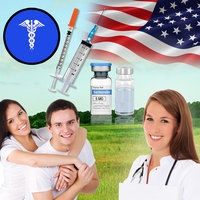Introduction
Wound healing is a complex process that involves a series of biological events aimed at restoring tissue integrity and function. In recent years, the role of hormones in this process has garnered significant attention, particularly the influence of testosterone. Testosterone undecanoate, a long-acting ester of testosterone, has emerged as a promising agent in enhancing wound healing among American men. This article explores the mechanisms by which testosterone undecanoate facilitates wound repair and its potential implications for clinical practice.
The Physiology of Wound Healing
Wound healing is characterized by three overlapping phases: inflammation, proliferation, and remodeling. During the inflammation phase, immune cells such as neutrophils and macrophages are recruited to the wound site to clear debris and combat infection. The proliferation phase involves the formation of new blood vessels (angiogenesis), the production of granulation tissue, and the migration of fibroblasts to synthesize collagen. Finally, the remodeling phase focuses on the reorganization of collagen fibers to enhance tissue strength and flexibility.
Testosterone Undecanoate and Its Mechanism of Action
Testosterone undecanoate is a synthetic form of testosterone that is administered intramuscularly, providing a sustained release of the hormone over several weeks. This long-acting formulation ensures stable testosterone levels, which is crucial for its therapeutic effects. Testosterone is known to influence various cellular processes, including protein synthesis, cell proliferation, and angiogenesis, all of which are critical for effective wound healing.
Enhancing Angiogenesis
One of the key mechanisms by which testosterone undecanoate enhances wound healing is through the promotion of angiogenesis. Studies have shown that testosterone stimulates the production of vascular endothelial growth factor (VEGF), a potent angiogenic factor that promotes the formation of new blood vessels. This increased vascularization not only improves nutrient and oxygen delivery to the wound site but also facilitates the removal of metabolic waste, thereby accelerating the healing process.
Stimulating Collagen Synthesis
Collagen is the primary structural protein in the extracellular matrix and is essential for the strength and integrity of healed tissue. Testosterone undecanoate has been shown to enhance collagen synthesis by stimulating fibroblast proliferation and activity. This increase in collagen production contributes to the formation of robust granulation tissue, which is a critical step in the proliferation phase of wound healing.
Modulating Inflammation
Inflammation is a necessary but tightly regulated component of wound healing. Excessive inflammation can lead to delayed healing and the formation of chronic wounds. Testosterone undecanoate has been found to modulate the inflammatory response by reducing the production of pro-inflammatory cytokines while enhancing the activity of anti-inflammatory mediators. This balanced inflammatory response helps to create an optimal environment for wound repair.
Clinical Implications for American Men
The potential benefits of testosterone undecanoate in wound healing are particularly relevant for American men, who may experience age-related declines in testosterone levels. Hypogonadism, characterized by low testosterone levels, is associated with impaired wound healing and increased susceptibility to chronic wounds. By restoring testosterone levels, testosterone undecanoate can help mitigate these risks and improve healing outcomes.
Conclusion
Testosterone undecanoate represents a promising therapeutic option for enhancing wound healing in American men. Its ability to promote angiogenesis, stimulate collagen synthesis, and modulate inflammation underscores its potential to improve healing outcomes. As research continues to elucidate the mechanisms and benefits of testosterone undecanoate, its integration into clinical practice may offer new hope for men struggling with wound healing challenges.
Contact Us For A Fast And Professional Response

- Testosterone Undecanoate: Enhancing Athletic Performance in American Males - Benefits and Risks [Last Updated On: February 21st, 2025] [Originally Added On: February 21st, 2025]
- Testosterone Undecanoate: Long-Acting Treatment for Hypogonadism in American Men [Last Updated On: March 17th, 2025] [Originally Added On: March 17th, 2025]
- Maximizing Testosterone Undecanoate Benefits: Diet, Exercise, and Lifestyle for American Men [Last Updated On: March 17th, 2025] [Originally Added On: March 17th, 2025]
- Testosterone Undecanoate: Cultural Perceptions, Health Impacts, and Therapeutic Use in American Males [Last Updated On: March 18th, 2025] [Originally Added On: March 18th, 2025]
- Testosterone Undecanoate: Long-Acting TRT for American Males with Hypogonadism [Last Updated On: March 18th, 2025] [Originally Added On: March 18th, 2025]
- Safety and Efficacy of Testosterone Undecanoate for American Men: A Comprehensive Review [Last Updated On: March 19th, 2025] [Originally Added On: March 19th, 2025]
- Testosterone Undecanoate Therapy: Importance of Regular Monitoring for American Men's Health [Last Updated On: March 19th, 2025] [Originally Added On: March 19th, 2025]
- Testosterone Undecanoate: Enhancing Life Quality in American Men with Hypogonadism [Last Updated On: March 19th, 2025] [Originally Added On: March 19th, 2025]
- Testosterone Undecanoate: A Potential Aid in Weight Management for American Men [Last Updated On: March 20th, 2025] [Originally Added On: March 20th, 2025]
- Testosterone Undecanoate: Combating Muscle Loss in Aging American Males [Last Updated On: March 21st, 2025] [Originally Added On: March 21st, 2025]
- Testosterone Undecanoate's Impact on Sleep Quality in American Males: Benefits and Risks [Last Updated On: March 21st, 2025] [Originally Added On: March 21st, 2025]
- Testosterone Undecanoate's Impact on Skin Health in American Males: Benefits and Risks [Last Updated On: March 21st, 2025] [Originally Added On: March 21st, 2025]
- Testosterone Undecanoate: Treating Hypogonadism and Dispelling Myths in Men's Health [Last Updated On: March 21st, 2025] [Originally Added On: March 21st, 2025]
- Testosterone Undecanoate: A Promising Therapy for Chronic Fatigue in American Men [Last Updated On: March 21st, 2025] [Originally Added On: March 21st, 2025]
- Testosterone Undecanoate: A Breakthrough in Managing Andropause for American Men [Last Updated On: March 22nd, 2025] [Originally Added On: March 22nd, 2025]
- Testosterone Undecanoate's Dual Impact on Hair Growth in American Males [Last Updated On: March 22nd, 2025] [Originally Added On: March 22nd, 2025]
- Testosterone Undecanoate: A Long-Acting Solution for Sexual Dysfunction in Men [Last Updated On: March 23rd, 2025] [Originally Added On: March 23rd, 2025]
- Testosterone Undecanoate: Enhancing Emotional Well-being in American Males [Last Updated On: March 23rd, 2025] [Originally Added On: March 23rd, 2025]
- Testosterone Undecanoate's Impact on Immune Function in American Men: Recent Findings [Last Updated On: March 23rd, 2025] [Originally Added On: March 23rd, 2025]
- Testosterone Undecanoate: A Promising Adjunct for Diabetes Management in American Males [Last Updated On: March 23rd, 2025] [Originally Added On: March 23rd, 2025]
- Testosterone Undecanoate: Enhancing Longevity and Health in American Males [Last Updated On: March 23rd, 2025] [Originally Added On: March 23rd, 2025]
- Testosterone Undecanoate's Impact on Digestive Health in American Males: A Comprehensive Analysis [Last Updated On: March 24th, 2025] [Originally Added On: March 24th, 2025]
- Testosterone Undecanoate: Enhancing Endurance in American Men Through Hormone Therapy [Last Updated On: March 24th, 2025] [Originally Added On: March 24th, 2025]
- Testosterone Undecanoate's Impact on Metabolic Health in American Men: Benefits and Risks [Last Updated On: March 24th, 2025] [Originally Added On: March 24th, 2025]
- Tailoring Testosterone Undecanoate Therapy for Diverse American Male Populations [Last Updated On: March 24th, 2025] [Originally Added On: March 24th, 2025]
- Testosterone Undecanoate: A Vital Therapy for Hypogonadism in American Male Veterans [Last Updated On: March 24th, 2025] [Originally Added On: March 24th, 2025]
- Testosterone Undecanoate's Impact on Blood Pressure in American Men: A Comprehensive Review [Last Updated On: March 24th, 2025] [Originally Added On: March 24th, 2025]
- Testosterone Undecanoate: Enhancing Fertility in American Men with Hypogonadism [Last Updated On: March 25th, 2025] [Originally Added On: March 25th, 2025]
- Testosterone Undecanoate Enhances Cognitive Function in American Men: A Review [Last Updated On: March 25th, 2025] [Originally Added On: March 25th, 2025]
- Economic Impact of Long-Acting Testosterone Undecanoate on U.S. Healthcare Costs [Last Updated On: March 25th, 2025] [Originally Added On: March 25th, 2025]
- Testosterone Undecanoate: Enhancing Male Health in American Clinical Trials [Last Updated On: March 25th, 2025] [Originally Added On: March 25th, 2025]
- Testosterone Undecanoate's Impact on Dental Health in American Males: Benefits and Risks [Last Updated On: March 26th, 2025] [Originally Added On: March 26th, 2025]
- Testosterone Undecanoate: Enhancing Life Quality in American Male Cancer Survivors [Last Updated On: March 26th, 2025] [Originally Added On: March 26th, 2025]
- Testosterone Undecanoate's Impact on Joint Health in American Men: Benefits and Risks [Last Updated On: March 26th, 2025] [Originally Added On: March 26th, 2025]
- Testosterone Undecanoate: A Novel Approach to Managing Allergies in American Males [Last Updated On: March 26th, 2025] [Originally Added On: March 26th, 2025]
- Testosterone Undecanoate's Impact on Liver Health in American Males: A Review [Last Updated On: March 26th, 2025] [Originally Added On: March 26th, 2025]
- Testosterone Undecanoate: Enhancing Injury Recovery in American Males [Last Updated On: March 26th, 2025] [Originally Added On: March 26th, 2025]
- Testosterone Undecanoate's Impact on Respiratory Health in American Men: Asthma and COPD [Last Updated On: March 27th, 2025] [Originally Added On: March 27th, 2025]
- Testosterone Undecanoate: A Promising Therapy for Chronic Pain in American Males [Last Updated On: March 27th, 2025] [Originally Added On: March 27th, 2025]
- Testosterone Undecanoate: Managing Side Effects in American Men [Last Updated On: March 27th, 2025] [Originally Added On: March 27th, 2025]
- Testosterone Undecanoate: Enhancing Eye Health in American Men [Last Updated On: March 27th, 2025] [Originally Added On: March 27th, 2025]
- Testosterone Undecanoate: Benefits and Management for American Men with Hypogonadism [Last Updated On: March 27th, 2025] [Originally Added On: March 27th, 2025]
- Testosterone Undecanoate's Impact on Hearing in American Males: A New Research Insight [Last Updated On: March 28th, 2025] [Originally Added On: March 28th, 2025]
- Testosterone Undecanoate: A Promising Treatment for Osteoporosis in American Men [Last Updated On: March 28th, 2025] [Originally Added On: March 28th, 2025]
- Testosterone Undecanoate's Impact on Cholesterol Levels in American Men: A Comprehensive Review [Last Updated On: March 28th, 2025] [Originally Added On: March 28th, 2025]
- Testosterone Undecanoate: A Promising Solution for Stress Management in American Males [Last Updated On: March 28th, 2025] [Originally Added On: March 28th, 2025]
- Testosterone Undecanoate's Impact on Kidney Function in American Men: A Comprehensive Review [Last Updated On: March 28th, 2025] [Originally Added On: March 28th, 2025]
- Testosterone Undecanoate: Enhancing Cognitive Performance in American Men [Last Updated On: March 28th, 2025] [Originally Added On: March 28th, 2025]
- Testosterone Undecanoate: Enhancing Reproductive Health in American Males [Last Updated On: March 29th, 2025] [Originally Added On: March 29th, 2025]
- Testosterone Undecanoate Enhances Skin Elasticity in American Men with Hypogonadism [Last Updated On: March 30th, 2025] [Originally Added On: March 30th, 2025]
- Testosterone Undecanoate: Dosage Adjustments for American Men with Hypogonadism [Last Updated On: March 30th, 2025] [Originally Added On: March 30th, 2025]
- Testosterone Undecanoate and Hair Loss: Risks and Mitigation Strategies for American Men [Last Updated On: March 30th, 2025] [Originally Added On: March 30th, 2025]
- Testosterone Undecanoate Enhances Nail Health in American Males with Hypogonadism [Last Updated On: March 31st, 2025] [Originally Added On: March 31st, 2025]
- Testosterone Undecanoate Therapy: Monitoring, Optimization, and Long-Term Health for American Men [Last Updated On: March 31st, 2025] [Originally Added On: March 31st, 2025]
- Testosterone Undecanoate Boosts Immune Function in American Men: Clinical Insights [Last Updated On: April 2nd, 2025] [Originally Added On: April 2nd, 2025]
- Testosterone Undecanoate: Enhancing Body Composition in American Males [Last Updated On: April 2nd, 2025] [Originally Added On: April 2nd, 2025]
- Testosterone Undecanoate: Enhancing Muscle Recovery in American Men [Last Updated On: April 6th, 2025] [Originally Added On: April 6th, 2025]
- Testosterone Undecanoate: Thrombotic Risks and Monitoring in American Men [Last Updated On: April 7th, 2025] [Originally Added On: April 7th, 2025]
- Testosterone Undecanoate's Impact on Glycemic Control in American Men with Hypogonadism [Last Updated On: April 8th, 2025] [Originally Added On: April 8th, 2025]
- Testosterone Undecanoate: A Novel Approach to Managing Anxiety in American Males [Last Updated On: April 8th, 2025] [Originally Added On: April 8th, 2025]
- Testosterone Undecanoate Enhances Bone Healing in American Men: A Comprehensive Review [Last Updated On: April 8th, 2025] [Originally Added On: April 8th, 2025]
- Testosterone Undecanoate: Enhancing Muscle Strength in American Men [Last Updated On: April 8th, 2025] [Originally Added On: April 8th, 2025]
- Testosterone Undecanoate: A Promising Treatment for Depression in American Males [Last Updated On: April 9th, 2025] [Originally Added On: April 9th, 2025]
- Testosterone Undecanoate: Skin Pigmentation Changes in American Males [Last Updated On: April 9th, 2025] [Originally Added On: April 9th, 2025]
- Testosterone Undecanoate's Impact on Heart Rate in American Men: A Comprehensive Review [Last Updated On: April 10th, 2025] [Originally Added On: April 10th, 2025]
- Testosterone Undecanoate: Enhancing Sexual Health in American Males with Hypogonadism [Last Updated On: April 11th, 2025] [Originally Added On: April 11th, 2025]
- Managing Side Effects of Testosterone Undecanoate Therapy in American Men [Last Updated On: April 12th, 2025] [Originally Added On: April 12th, 2025]
- Testosterone Undecanoate's Impact on Thermoregulation in American Men: Clinical Insights [Last Updated On: April 12th, 2025] [Originally Added On: April 12th, 2025]
- Testosterone Undecanoate's Impact on Appetite in American Males: A Comprehensive Review [Last Updated On: April 15th, 2025] [Originally Added On: April 15th, 2025]
- Testosterone Undecanoate's Impact on Skin Hydration in American Males: A Comprehensive Review [Last Updated On: April 17th, 2025] [Originally Added On: April 17th, 2025]
- Testosterone Undecanoate's Impact on Blood Flow in American Men: Benefits and Risks [Last Updated On: April 17th, 2025] [Originally Added On: April 17th, 2025]
- Testosterone Undecanoate: Enhancing TRT with Lifestyle Adjustments for American Men [Last Updated On: April 19th, 2025] [Originally Added On: April 19th, 2025]

















